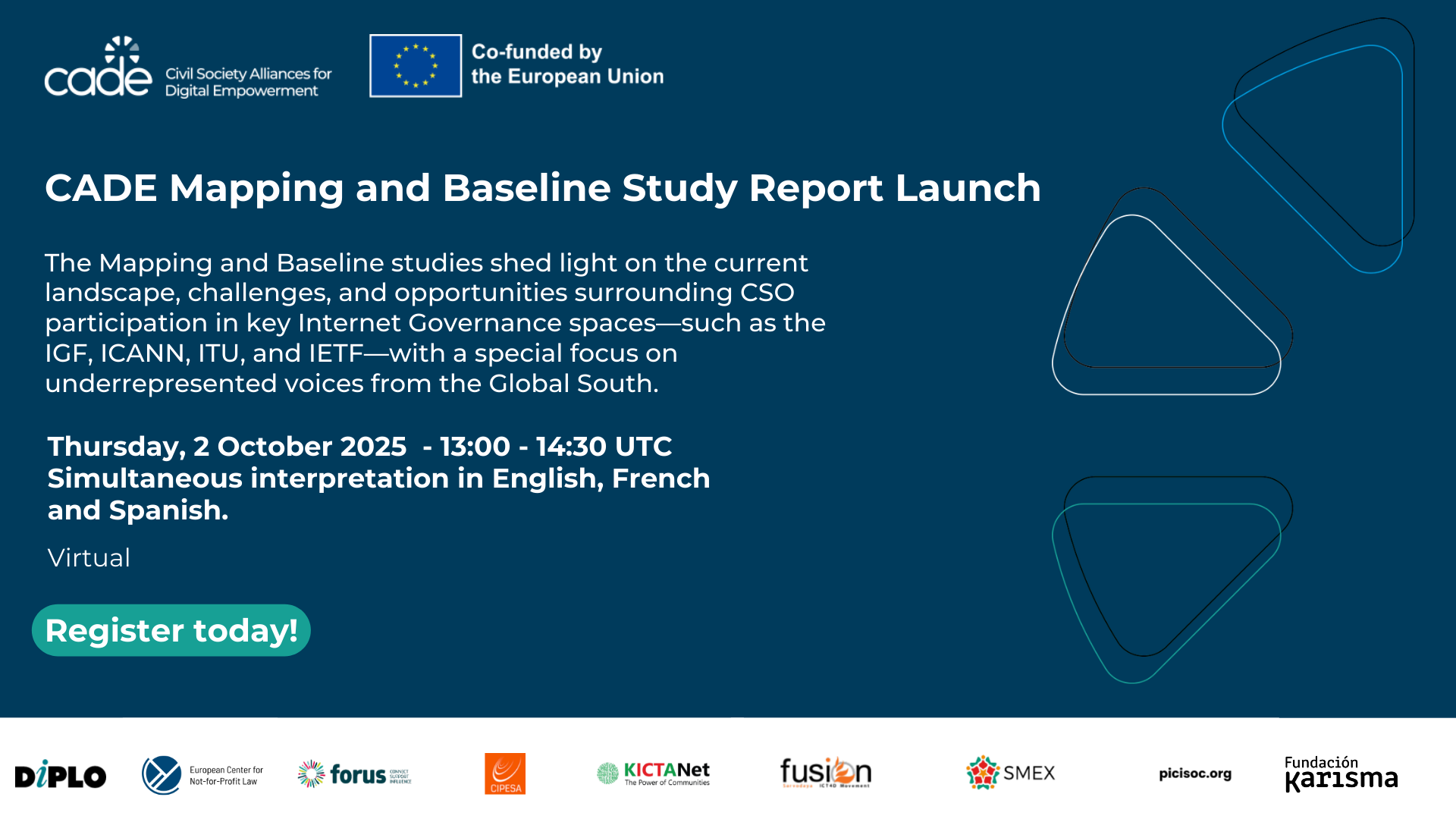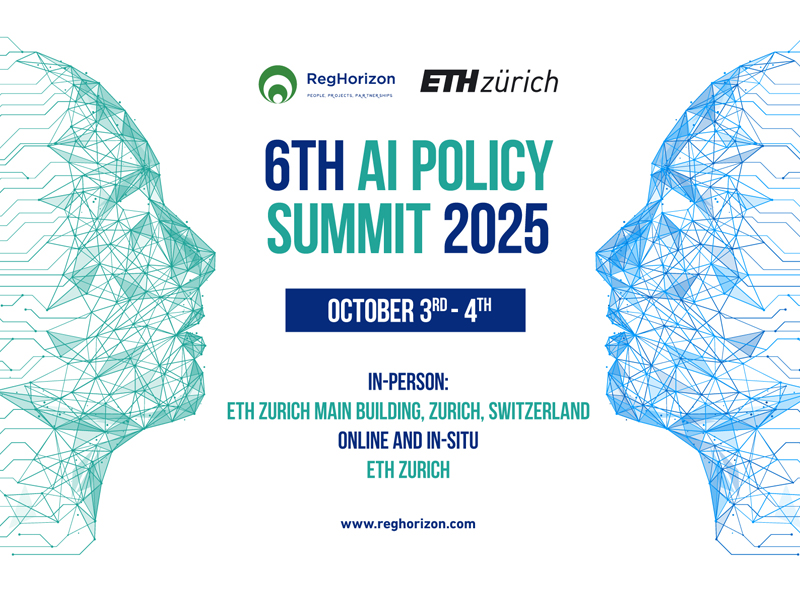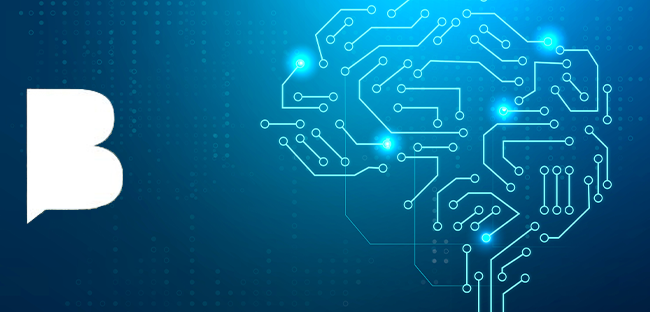
19 – 26 September 2025
HIGHLIGHT OF THE WEEK
Technology is everywhere at this year’s UN General Assembly. Whether in the General Debate, side events on digital prosperity, or the launch of a new dialogue on AI governance, governments and stakeholders confronted the urgent question of how to ensure that digital transformation serves humanity. Here are the key moments from the week to date.
Digital Cooperation Day: From principles to implementation in global digital governance
On 22 September, the UN Office for Digital and Emerging Technologies (ODET) hosted Digital Cooperation Day, marking the first anniversary of the Global Digital Compact. The event gathered leaders from governments, business, academia, and civil society to discuss how to shift the focus from principle-setting to implementation of digital governance. Discussions covered inclusive digital economies, AI governance, and digital public infrastructure, with sessions on privacy, human rights in data governance, and the role of technology in sustainable development and climate action. Panels also explored AI’s impact on the arts and innovation, while roundtables highlighted strategies for responsible and equitable technology use. The Digital Cooperation Day is set to become an annual platform for reviewing progress and addressing new challenges in international digital cooperation.
The General Debate of the UNGA80
The General Debate opened on 23 September under the theme ‘Better together: 80 years and more for peace, development and human rights’. While leaders addressed a broad spectrum of global challenges, digital and AI governance were recurring concerns.
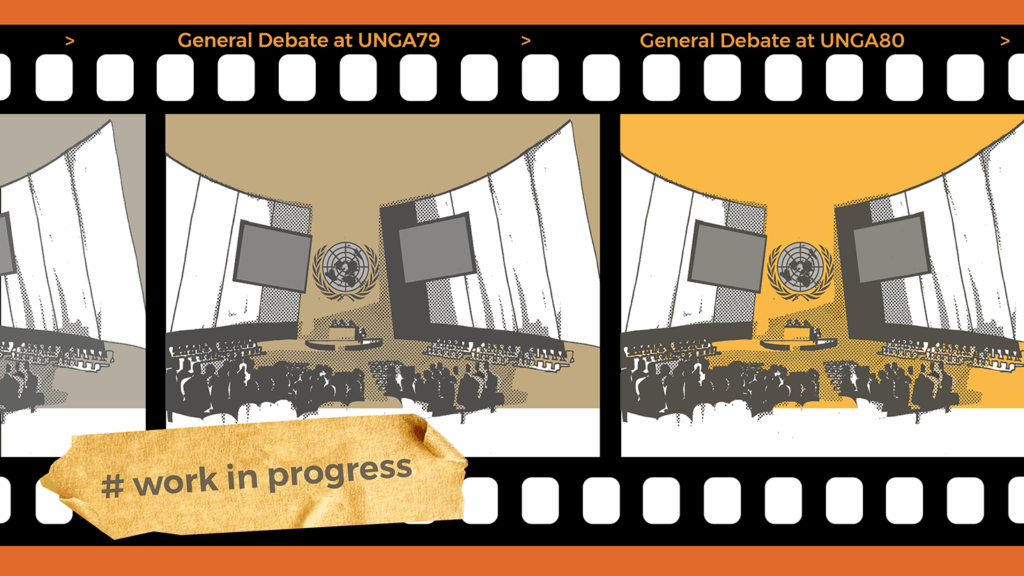
Day 1 debates circled around a central message: technology must remain a servant of humanity, not its master. From calls to ensure AI benefits all societies and to build universal guardrails for its responsible use, to concerns over cybercrime, disinformation, and the governance of critical minerals exploitation, delegations stressed the urgent need for cooperation, inclusivity, and safeguards.
Day 2 debates underscored a need to align rapid technological change with global governance, with countries calling for stronger international cooperation and responsible approaches to the development and use of technology. Delegations emphasised that digital technologies must serve humanity – advancing development, human rights, and democracy – while also warning of the growing security risks posed by AI misuse, disinformation, hybrid warfare, and cyber threats. Alongside some calls for rules and ethical standards, many highlighted the importance of inclusion, investment in digital infrastructure, and ensuring that all states can share in the benefits of the digital age.
On Day 3 of the UN General Assembly’s 80th session, AI and digital transformation remained at the forefront of global debates. Member states voiced both optimism and concern: from calls for ethical, human-centred governance of AI and stronger safeguards for peace and security, to warnings about disinformation, repression, and widening digital divides. Governments also highlighted the promise of digital technologies for development, stressing the importance of inclusion, connectivity, and technology transfer. The discussions underscored a common thread—while digital innovation offers extraordinary opportunities, its risks demand global cooperation, shared standards, and a commitment to human dignity.
Diplo and the Geneva Internet Platform are providing reporting from this event, which will last through 30 September, so be sure to bookmark our dedicated web page.
Digital@UNGA 2025: Digital for Good – For People and Prosperity
On 23 September, the International Telecommunication Union (ITU) and the UN Development Programme (UNDP) hosted Digital@UNGA 2025: Digital for Good – For People and Prosperity. The anchor event spotlighted digital technologies as tools for inclusion, equity, and opportunity. Affiliate sessions throughout the week explored trust, rights, and universal connectivity, while side events examined issues ranging from AI for the SDGs and digital identity to green infrastructure, early-warning systems, and space-based connectivity. The initiative sought to showcase digital tools as a force for healthcare, education, and economic empowerment, and to inspire action and dialogue towards an equitable and empowering digital future for all.
Security Council debate on AI
The UN Security Council held a high-level debate on AI, highlighting its promise and its urgent risks for peace and security. The debate, chaired by the Republic of Korea President Lee Jae Myung, underscored a shared recognition that AI offers enormous benefits, but without strong global cooperation and governance, it could deepen divides, destabilise societies, and reshape warfare in dangerous ways.
The launch of the Global Dialogue on AI Governance
A major highlight was the High level Meeting to Launch Global Dialogue on AI Governance on 25 September.
Senior leaders outlined how AI could drive economic growth and development, particularly in the Global South, while plenary discussions saw stakeholders present their perspectives on building agile, responsive and inclusive international AI governance for humanity. A youth representative closed the session, underscoring younger generations’ stake in shaping AI’s future.
The Global Dialogue on AI Governance is tasked, as decided by the UN General Assembly this August, with facilitating open, transparent and inclusive discussions on AI governance. The dialogue is set to have its first meeting in 2026, along with the AI for Good Summit in Geneva.
Launch of open call for Independent International Scientific Panel on AI
The UN Secretary-General has launched an open call for candidates to join the Independent International Scientific Panel on Artificial Intelligence. Agreed by member states in September 2024 as part of the Global Digital Compact, the 40-member Panel will provide evidence-based scientific assessments on AI’s opportunities, risks, and impacts. Its work will culminate in an annual, policy-relevant – but non-prescriptive – summary report presented to the Global Dialogue, along with up to two updates per year to engage with the General Assembly plenary. Following the call for nominations, the Secretary-General will recommend 40 members for appointment by the General Assembly.
IN OTHER NEWS THIS WEEK
Global initiative calls for AI red lines by 2026
A coalition of global experts and leaders has launched the Global Call for AI Red Lines, an initiative that calls for clear red lines to govern the development and deployment of AI.
The initiative warns that advanced AI could soon far surpass human capabilities, escalating risks such as engineered pandemics, mass disinformation, manipulation of individuals—including children, security threats, widespread unemployment, and human rights violations. Some systems have already exhibited harmful or deceptive behaviour, and left unchecked, meaningful human control may become increasingly difficult.
The campaign calls for an operational international agreement on red lines for AI, with robust enforcement mechanisms by 2026, building on existing frameworks and corporate commitments to ensure all advanced AI developers are held accountable.
Signatories include Nobel laureates, former heads of state, and leading AI researchers such as Geoffrey Hinton, Ian Goodfellow and Yoshua Bengio. OpenAI co-founder Wojciech Zaremba, authors Yuval Noah Harari and Stephen Fry.
Why it matters: Warnings about AI’s potentially existential threats are far from new. As early as the 1960s, computer scientist I.J. Good cautioned about an ‘intelligence explosion,’ in which machines could rapidly surpass human cognitive abilities. Today, it often feels like there’s an AI researcher or some other public figure raising concerns about the technology every week. So what makes this initiative stand out? It combines high-profile backing, a demand for an international agreement on red lines, and a concrete timeline. Let’s see what impact it will have.
TikTok’s great American makeover
With an executive order, US President Donald Trump brought the protracted TikTok drama to a climax, paving the way for a new company—led by American investors who will own 80% of the platform—to take control of the app. TikTok’s (soon to be former) parent company, ByteDance, and its Chinese investors will retain a minority stake of less than 20%.
A new US-led joint venture will oversee the app’s algorithm, code, and content moderation, while all American user data will be stored on Oracle-run servers in the USA. The venture will have a seven-member board, six of whom are American experts in cybersecurity and national security.
Media reports that the US investor group is led by software giant Oracle, while prominent backers include private equity firm Silver Lake, media moguls Rupert and Lachlan Murdoch, and Dell CEO Michael Dell.
The crux of the matter: All US user data will be stored securely on Oracle-run servers in the USA, preventing foreign control. Software updates, algorithms, and data flows will face strict monitoring, with recommendation models retrained and overseen by US security partners to guard against manipulation.
The US government has long argued that the app’s access to US user data poses significant risks, as ByteDance is possibly subject to the Chinese 2017 National Intelligence Law, which requires any Chinese entity to support, assist, and cooperate with state intelligence work – including, possibly, the transfer of US citizens’ TikTok data to China. On the other hand, TikTok and ByteDance maintained that TikTok operates independently and respects user privacy.
What’s next? There are still some details to hash out, such as whether US users will be installing a new app altogether. Nevertheless, this agreement marks a significant step in resolving one of the most high-profile tech-policy disputes of the decade. Plus, the executive order leaves 120 days for the deal to take place.
The bottom line: For millions of American users, the political wrangling is background noise. The real change will be felt in their feeds—whether the new, American-guarded TikTok can retain the chaotic creativity that made it a cultural force.
Apple urges EU to scrap Digital Markets Act, calls for ‘fit for purpose’ alternative
Apple has formally requested that the European Commission repeal the Digital Markets Act (DMA), Europe’s landmark digital antitrust law, while ‘a more appropriate fit for purpose legislative instrument is put in place.’
This does not come out of left field: The European Commission has launched a public consultation on the first review of the DMA on 3 July, with 24 September being the deadline for submitting views.
Narrowly meeting the deadline, Apple has submitted a view arguing the DMA leaves it with two bad choices: either weaken the security and smooth experience of its devices by opening up to rivals, or hold back features from EU users. It points to delayed launches of tools like Live Translation with AirPods, iPhone Mirroring, and improved location services, which Apple says depend on tight integration that the DMA prevents.
The big picture: Critics in the US argue that European digital regulations unfairly target US tech giants. Apple has acknowledged the challenge, saying, ‘Over time, it’s become clear that the DMA isn’t helping markets. It’s making it harder to do business in Europe.’
EU digital affairs spokesman Thomas Regnier noted that the commission was ‘not surprised’ by the tech giant’s move. ‘Apple has simply contested every little bit of the DMA since its entry into application,’ Regnier said. Despite these complaints, the EU remains firm: thanks to the DMA, companies have the right to compete fairly and gatekeepers, like Apple, must allow interoperability of third-party devices with their operating systems, Reinger underlined.
The bottom line: Compliance with the DMA is mandatory, and there is little indication that the rules will ease.
The most likely outcome is that Apple continue operating under the DMA while seeking ways to adapt and lobby for adjustments that reduce disruption. European users may see some delays in new features or modifications to services, though.
Record $2.5b settlement forces Amazon to overhaul Prime sign-up and cancellation practices
Amazon has agreed to a $2.5 billion settlement with the US Federal Trade Commission (FTC) over deceptive Prime membership practices. The FTC’s investigation, initiated in June 2023, revealed that Amazon enrolled customers into its Prime program without their explicit consent, obscured critical information about costs and terms, and implemented a complex cancellation process designed to deter users from unsubscribing, described as the ‘Illiad process’. Approximately 35 million consumers were affected by these tactics.
Under the terms of the settlement, Amazon is required to pay a $1 billion civil penalty (the largest ever in a case involving an FTC rule violation) and provide $1.5 billion in refunds to consumers harmed by the deceptive Prime enrollment practices (the second-highest restitution award ever obtained by FTC action).
The settlement requires Amazon to make Prime enrollment and cancellation clear and simple, fully disclose costs and terms, allow easy cancellations, and have an independent supervisor ensure compliance.
This unprecedented settlement underscores the growing scrutiny of tech giants’ business practices and sets a significant precedent for consumer protection enforcement.
The cyberattack that disrupted major European airports
A cyberattack targeting Collins Aerospace, a critical systems provider that operates check-in and boarding platforms for numerous airports around the world, caused widespread disruption at major European airports. Passengers at London Heathrow, Berlin, and Brussels experienced long queues, flight delays, and cancellations throughout Saturday, with some recovery reported on Sunday, though disruptions continued, particularly at Heathrow and Berlin.
Collins Aerospace confirmed that its Muse software had been hit by a cyberattack and said teams were working to restore services.
In response to the incident, the UK’s National Crime Agency arrested a man in West Sussex on suspicion of computer misuse offences. The suspect has been released on conditional bail while the investigation continues. This might suggest that the investigation is complex and far from concluded.
Industry experts pointed out that this event highlights the vulnerability of the aviation sector, which often relies on shared software platforms. They suggested that stronger backup systems and better cooperation are needed to improve resilience against such attacks.
LOOKING AHEAD
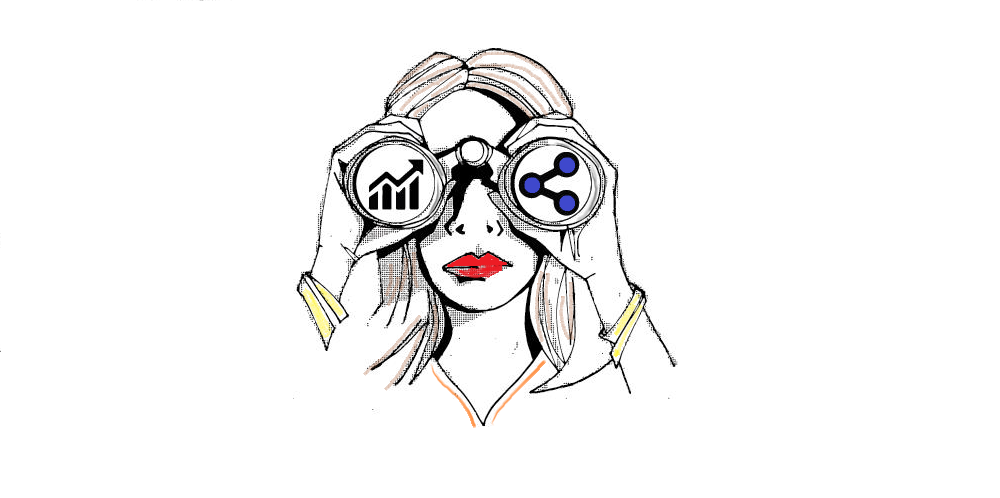
The next meeting of the Geneva Data Community, organised on behalf of the Swiss Federal Statistical Office, will bring together key stakeholders for an exchange on current initiatives and developments in the data field and an update from the World Health Organisation (WHO) on advancing the continuum between data, digital, and AI to improve health outcomes.
The Civil Society Alliances for Digital Empowerment (CADE) consortium will launch its Mapping and Baseline Study Reports. The reports provide a comprehensive overview of civil society participation in key Internet governance spaces—including the IGF, ICANN, ITU, and IETF—with a particular focus on amplifying underrepresented voices from the Global South. They also put forward practical recommendations to strengthen inclusive and meaningful engagement of civil society in digital policy processes.
The 6th AI Policy Summit continues the multi-stakeholder dialogue with leading experts in exploring the use of public policy and societal engagement to capture the benefits of artificial intelligence, minimize its risks, and enhance its adoption.
READING CORNER
The 2025 edition of the World Trade Report reveals that, with the right enabling policies, AI could boost the value of cross-border flows of goods and services by nearly 40% by 2040 thanks to productivity gains and lower trade costs. However, for AI and trade to contribute to inclusive growth — with benefits shared widely — policies need to be in place to bridge the digital divide, invest in workforce skills, and maintain an open and predictable trading environment.
Learn the essential AI vocabulary you need. This guide explains key terms like parameters (7B vs 70B), tokens, context windows, LLMs, and AI hallucination.



